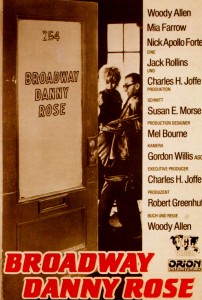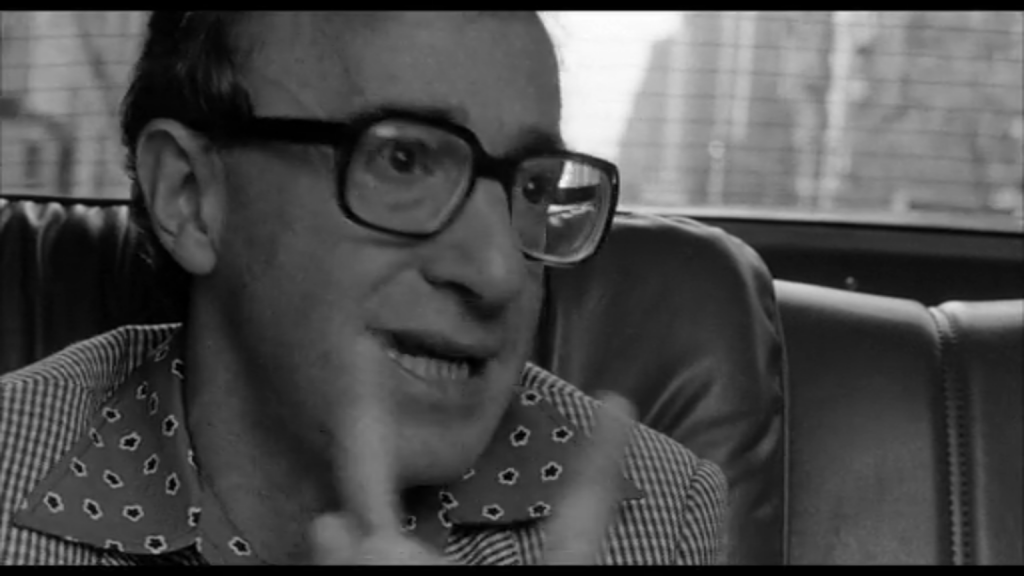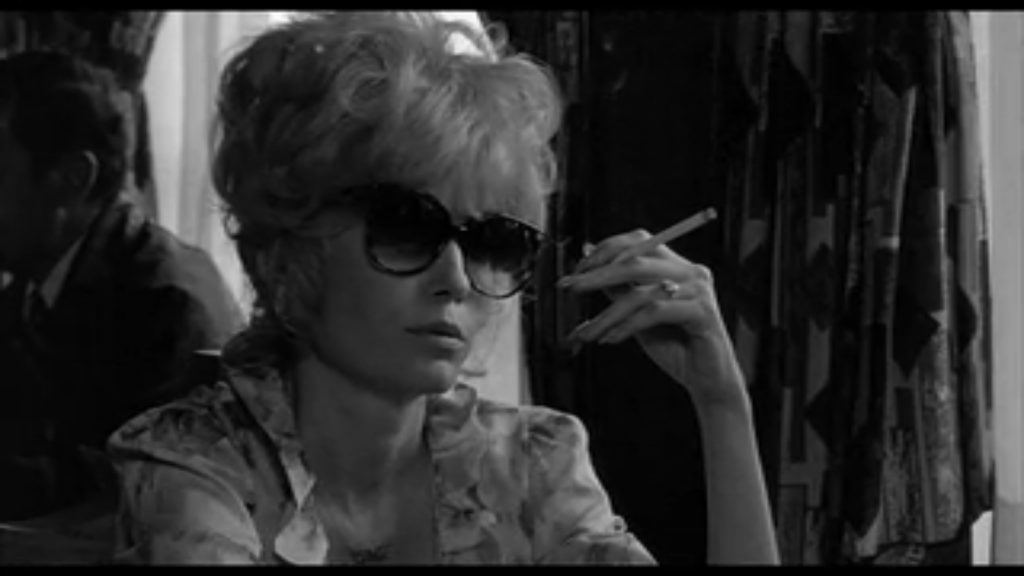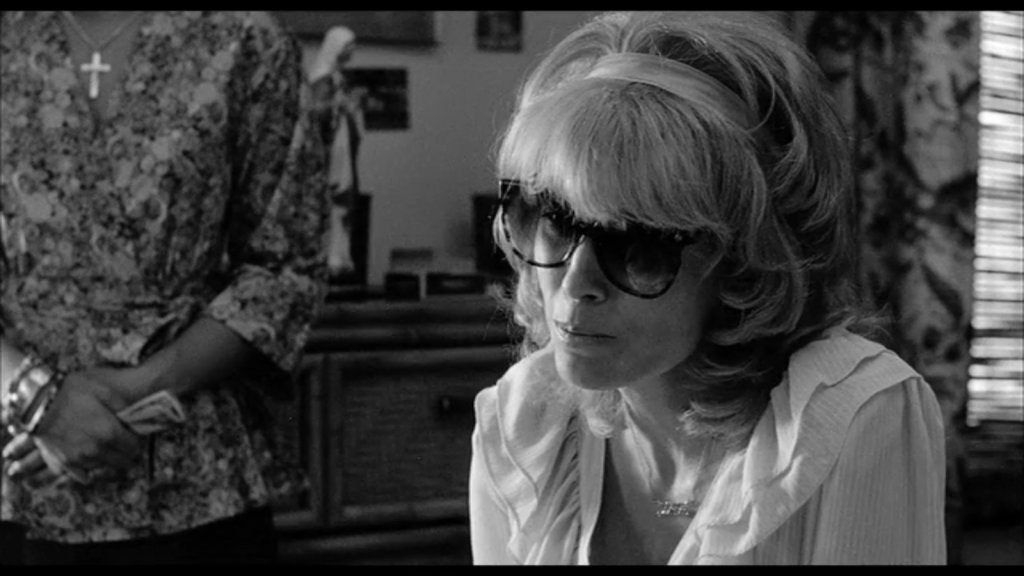Broadway Danny Rose (1982)
“Life’s short; you don’t get any medals for being a boy scout.”
|
Synopsis: |
|
Genres, Themes, Actors, and Directors:
Response to Peary’s Review: Though Allen does a fine job playing such a sympathetic character — and Forte is completely convincing in his debut role (he wrote his own songs as well) — Farrow’s performance is the true surprise here: she’s literally unrecognizable at first in her “blond wig and dark glasses”, using a “convincing New Jersey accent”; her character’s cynical, self-preserving approach to life functions as an effectively stark contrast to Danny’s eternally helpful optimism. Meanwhile, Allen’s use of a flashback structure to frame the storyline — involving a group of stand-up comedians who reminisce in a diner about Danny Rose — perfectly establishes the film’s tone and milieu, allowing Allen to pay homage to the performance medium that gave him his start in show business. One may question why DP Gordon Willis chose to film the picture in (admittedly gorgeous) b&w (perhaps to evoke an era of nostalgia?); but while I believe the film could have worked just as well in color, I won’t begin to quibble. Redeeming Qualities and Moments: Must See? Categories
Links: |




One thought on “Broadway Danny Rose (1982)”
A must, and one that holds up well on repeat viewings.
Peary’s comment that this film “never reaches the hilarious heights of Allen’s classics” is troubling. On the one hand, it suggests that Allen should be happy being pigeon-holed as a certain kind of writer (which, of course, was Allen’s main motivation in giving us ‘Stardust Memories’). On the other, it implies that the best comedies need to reach “hilarious heights”. At any rate, it’s a rather useless observation. As I tend to say, each film needs to be accepted (or rejected) on its own terms. And, at least in his films up to 1987, Allen was usually more intensely interested in redefining for us what he thinks is funny.
With ‘Zelig’ coming before and ‘The Purple Rose of Cairo’ following, Allen gives us three wonderfully comic character studies in a row, each containing a certain bittersweet quality. Obviously, ‘BDR’ is the most realistic of the three since it comes off as a tale that could actually happen.
Unlike, Radio Days’ (and until it was brought out in the assessment), it was less apparent to me that Allen was, with this film, paying homage. But that does seem to be quite true. (I probably didn’t consider that since, whereas my generation grew up largely with radio, much fewer of us entered adulthood in the immediate company of stand-up comics.) I imagine that’s why black-and-white was chosen for the story: for those who went through them, the glory days of that lifestyle were on-screen in black-and-white.
I’ve seen this film a number of times and, as noted, it is “fast-paced throughout”. The main cast is small and there’s not a lot of ground to cover, so keeping it short (84 min.) and to the point is a strength. The plot elements are few but they are marvelously constructed. (In a nice touch, it’s engaging and energetic when Allen first meets Farrow and we’re subjected to sequences involving overlapping dialogue; it’s fun keeping up.) In a number of his films, Allen gives walk-on characters memorable one-liners, but here he gives most of his cameo performers memorable visuals instead (my favorite being the musical talents of the woman who plays the water-filled glasses).
Allen is endearing here – and esp. in the latter part of the film. Farrow is indeed a “true surprise”, as we’re given a clear example of what she was capable of under Allen’s guidance. (A variation of this character would, of course, appear in Farrow’s ‘Radio Days’ performance.) And Forte is the perfect lounge-act singer (he’s especially good when he appears lost without his manager’s constant help).
In short, this is simply a lovely film in all respects.